Inside: The death of a child is every parent’s worst nightmare and according to experts, the most traumatic experience that can happen to a parent. It’s gut-wrenching and heart-breaking and something many mothers and fathers never completely recover from. Having lost a child myself, here are 10 ways I used to cope, heal, and eventually find closure and peace.
Death of a Child
On March 30, 1985, our fourth son, Jarom died of a neural tube disorder (brain disorder). He was a newborn…four weeks short of being full-term. He lived for 30 minutes.
The first 10 years, I thought about him constantly, but time has a way of healing wounds and now when I think of him, I feel at peace.
I was torn about writing this blog. It’s difficult and uncomfortable to share personal or private emotions. But over the last many years, I’ve met a number of parents who have lost children and their experiences and words have helped me. Maybe something I say might help you.
Death of a Child: The Worst Loss
Experts say that losing a child is the worst thing a parent can experience. I have to agree. Everything about it is painful.
However, over time, the death of someone you dearly love and cherish (like a child) teaches you lessons that you can’t learn in any other way. Unfortunately, you have to actually experience it to fully understand it. Forget about reading books on death and dying. It’s not the same learning curve.
The latter means you are in the bleachers observing the action taking place in the arena. The former is actually being in the arena and experiencing the blood, sweat, and tears associated with the pain.
But while you’re in the arena feeling the pain, learning kicks into high gear.
Here are 10 things I learned from my son’s death. If you’ve lost a child, you will probably relate. However, when it comes to death and dying there is no “one-size-fits-all” learning curve.
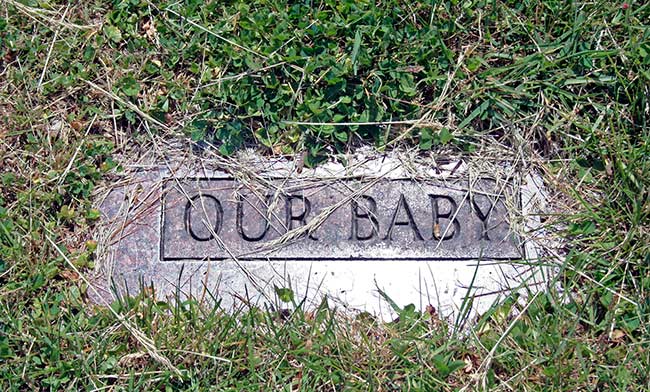
According to experts, a parents’ worst nightmare is losing a child. It is very traumatic and can take years to recover from.
10 Things I Learned About Death and Dying
#1: Grieving is a Must
Elisabeth Kübler-Ross, MD wrote many books about death. In her book, Death and Dying, she lists the five stages of grief that people experience: denial, anger, bargaining, depression, and acceptance.
For decades, these five stages have been the model for people dealing with their own impending death or the death of loved ones. Her steps have helped thousands.
However, my experience did not fit into the Kübler-Ross model. It didn’t resonate with me.
Many of the stages she discussed, I never experienced such as denial, anger or bargaining. Nor were my feelings compartmentalized into steps or phases. Mine took a different path.
The main emotion I felt was numbness.
Debilitating numbness. Numbness where you wake up each day feeling detached from life and people. A numbness that allows you to go through the routine of living but never feeling, thinking or being in the moment. It’s going outdoors and not noticing that the sun is shining. It’s living life in shades of black. It’s failing to notice your kids fighting or crying or needing help.
It’s survival mode.
In this mode, I made a BIG mistake…I never cried. I never mourned. I kept everything inside. It was the wrong thing to do. I brought my own healing process to a halt by not allowing myself to cry or mourn.
Tears are healing.
Many years ago, scientists discovered that human tears have a healing component to them and that our breathing and heart rate decreases after having a “good cry.”
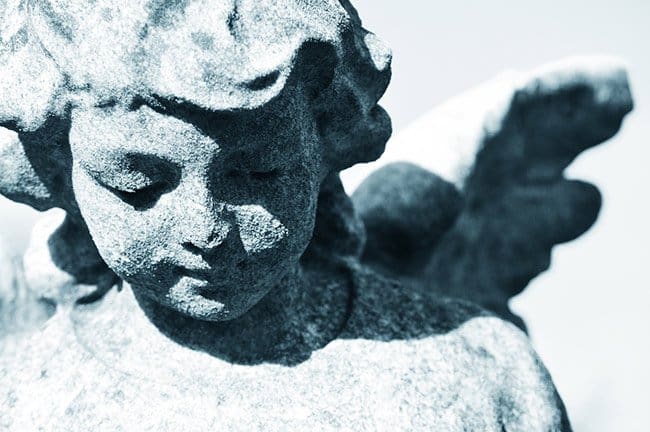
Scientists have found that we shed three types of tears: reflex, continuous and emotional. When we cry our emotional tears that contain stress hormones are released and get excreted from the body. The result: we feel better
Judith Orloff, MD has written about tears and the three different kinds of tears we shed: reflex, continuous and emotional. Each kind has a different way of healing.
She states:
Emotional tears have special health benefits. Biochemist and “tear expert” Dr. William Frey at the Ramsey Medical Center in Minneapolis discovered that emotional tears contain stress hormones which get excreted from the body through crying. Dr. Frey found that emotional tears shed these hormones and other toxins which accumulate during stress. Additional studies also suggest that crying stimulates the production of endorphins, our body’s natural painkiller and “feel-good” hormones.”
Crying makes us feel better, even when a problem persists. In addition to physical detoxification, emotional tears heal the heart.” (The Health Benefits of Tears, Judith Orloff)
Because I did not grieve, it took three years after my son’s death for me to “wake” up. I was pregnant with son #5 and because of Jarom’s issues, we sought genetic counseling at Harbor UCLA. Based on their findings, I decided to have an amniocentesis.
After the procedure, I went into the bathroom to change. No one was there. I went into one of the stalls, sat down on the floor and began sobbing. I sobbed for over an hour and when I finished, I felt different.
My healing was finally beginning.
Suggestion:
When experiencing the death of a child or any loved one, give yourself permission to mourn and to cry. Crying is not a sign of weakness or lack of character or self-centeredness. It’s a sign you are human and are experiencing something difficult. It means your inner-child is trying to find a way to heal. Have a good cry. A healing cry.
#2: Be Sensitive to the Needs of Children at Home
I found out about Jarom’s health issues four days before he was born. During those four days, I had to shop for burial clothes, make arrangements with a mortuary, purchase a burial plot, organize a small graveside service AND, talk to our children.
It was a stressful time trying to squeeze in everything surrounding our child’s impending death and burial while taking care of the needs of our young sons at home.
I’m a reader, but I didn’t have time to go to the library and check out books that would tell me the right things to say to my children about death.
I had to rely on my instincts. They didn’t serve me well.
We gathered our sons together and explained the situation. Our oldest son was eight. He had a lot of questions.
I found that talking to your kids about death is similar to talking to your kids about sex…they can only understand so much and repetition is necessary. It takes time for children to grasp something as big as death.
And the situation that developed with our oldest son made me realize that kids feel grief and hold on to grief just like adults.
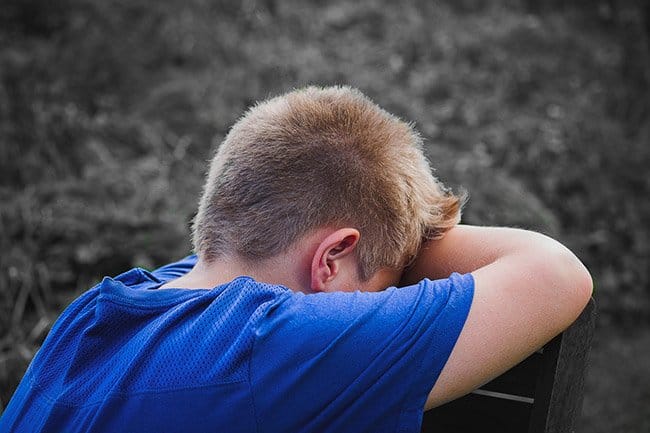
When you lose a child, be sensitive to the needs of the children left behind. Talk to them, discuss what happened to their sibling and if necessary, seek professional help
Three years later, Jason came to me very upset. He was crying and screaming and wanting to know why I didn’t do more for his brother…why I didn’t save him.
In a desperate attempt, I grabbed what I felt could help…a children’s book…Love you Forever.
I sat with him on the floor, and holding him close with both my arms wrapped around him, I read,
“I’ll love you forever,
I’ll like you for always,
As long as I’m living
My baby you’ll be.”
Every hurt and misunderstanding about his brother that he had bottled up for 3+ years was washed away in a sea of healing tears. Whatever was in that book, spoke to his young soul.
Jason was 8 when his brother died. At this age, children understand that death is irreversible and that everyone dies, but they think just old people die. Having his baby brother die was more traumatic. At the time, I did not understand this. Looking back, would I have done something differently? Yes, coupled with talking to our son, I would have sought professional help for him. It was my mistake.
Suggestion:
Using baby steps, talk to your kids about death. Explain as much as they are able to grasp given their age(s). According to your beliefs, your questions and explanations will vary. Asking basic questions will help you to see what they are understanding such as:
- “I want to explain some things about death to you. We’ll take it slow and you can ask any questions you want.”
- “Do you understand why people die? Please share your thoughts with me.”
- “What are your feelings about death? It can be scary. What do you think?”
I also found that children’s books speak volumes to kids of all ages. Sometimes reading a children’s book to a child will answer questions and give comfort more than anything else you can do.
Here are a couple of suggestions:
- I Miss You by Pat Thomas
- The Invisible String by Patrice Karst
And, if you feel it is necessary, seek professional help for your children…sooner rather than later.
#3: Make a Memory, Take a Picture

Keep the memory of your terminally ill child alive: take pictures. As the years go by, they will become precious keepsakes.
Knowing that our son would die, I wanted pictures of him for memories. I later read an article in the Los Angeles Times about things parents should do when faced with a terminally ill child. One was to take lots of pictures.
The pictures of our son have helped to keep the memory of him alive. He’s a real person who once lived on this earth.
Suggestion:
This is a no-brainer; especially in this age where it’s so easy to take pictures on your phone. Keep the memory of your child close to your heart—take pictures. As the years go by, those pictures will become priceless.
#4: A Loss is a Loss
One day I went to visit my son’s grave. A woman came by and we started talking.
She shared with me that her daughter died at 18 months old. When I told her my son died as a newborn she said, “Well, you never really suffered then. Mine was a true loss—I had my daughter for 18 months. You didn’t even bring your son home from the hospital. I suffered more.”
I had to agree with her. She suffered terribly. But, it’s horrible to have a child for any length of time and then to lose him/her.
What made her loss even more poignant was she didn’t have any other children to ease the pain. I did. I did not come home to a childless home. I had three sons waiting for me.
I’ve since met other women who lost their first baby and came home to an empty home…my sister-in-law being one. It’s painful to pack up your hopes and dreams to await another pregnancy and child.
I have a friend who lost her daughter at age seven to brain cancer.
I read about a mother who lost all three of her children by the age of 18 to a genetic disorder.
These women suffered horribly…perhaps more so than I did.
However, is that what death is all about…comparing and contrasting degrees of suffering?
Isn’t a loss still a loss?
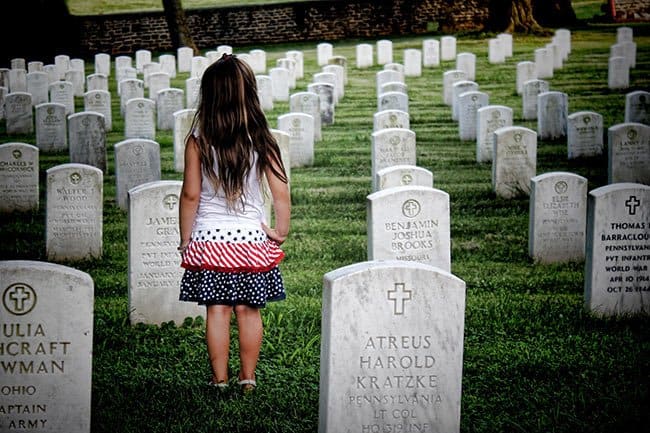
A loss is a loss. Don’t compare your pain to another parents’ pain. The pain that results from the death of a child is traumatic for all parents.
Suggestion:
Try not to compare your loss to someone else’s loss. People always compare their weaknesses against someone else’s strengths. And when death is the topic, comparing your suffering against someone else’s suffering is a lose/lose situation. Everyone aches when a child dies. There are no so-called “winners” whose measure of suffering surmounts everyone else’s.
#5: Ignore Insensitive People
One important thing I learned from Jarom’s death is the old adage: “If you don’t have anything nice to say, keep your mouth shut.” (or something like that)
Friends and relatives mean well. But death can be awkward for many people and most do not know what to say. Well-meaning people can end up making thoughtless remarks.
Here are some things people said to me:
- “Surely you are not going to cry over this baby…you have 3 other children at home! Plus, you don’t want your children to see you crying over this baby, do you?” (a friend)
- “This baby means nothing to your family. Don’t bring him home to bury. Let the hospital have him. He’s nothing.” (a doctor friend)
- “Hey, I found a coffin for this kid for 24 bucks!” (ecclesiastical leader)
- “He’s in a better place. Think of what it would cost to take care of a child like this!” (a friend)
- “God knows best. We must accept His plan.” (a friend)
Suggestion:
If you have a friend who loses a child, try saying something like these statements made to me by my caring friends:
- I’m so sorry.
- I’m coming over so that we can mourn together
- I’m bringing dinner over to your family
- I want to help. I’m taking your kids for the day
- I’m coming over just to sit with you. If you need anything I’ll be there.
- I know you feel you need to be brave, but please allow yourself to cry
#6: Surround Yourself with Supportive Friends
Everyone needs friends, especially when tragedy strikes. Good friends, supportive friends, and caring friends become more precious than gold.
Be that friend:
- Who mourns with those who are mourning
- Who helps without being asked
- Who doesn’t give advice during tragic times
- Who simply listens with a non-judgmental heart
- Who doesn’t talk about someone else with a similar problem
- Who is loving, kind and compassionate
I was very fortunate. I had four friends like these. We’ve been there for each other in difficult times and will continue to be there for each other.
Suggestion:
Be that friend who reaches out in love to comfort a friend in need. Wrap loving arms around the person in pain and envelop them in a cocoon of compassion and protection. They will always remember the kindness you extended to them.
#7: Pen to Paper
I’m a fan of Julia Cameron, the author of, The Artist’s Way. She talks about the need for what she affectionately calls, “Morning Pages.” It involves taking time each morning to write in long-hand (no computer) three pages of whatever pops into your head. Many people report having amazing bursts of creativity, solving perplexing problems and getting pent-up emotions poured out on paper. During this exercise, you’re not editing, or worrying about grammar or spelling–it’s free-form writing.

Writing can be an important part of the grieving process. It can be a time to verbalize pain and debilitating emotions through flowing penmanship
The goal of Morning Pages? In Cameron’s words, “to get to the other side of our fears, our negativity, and our moods.” Practicing Morning Pages gives you permission to feel and say anything you want without censorship.
Writing can be an important part of the grieving process. It can be a time to verbalize pain and debilitating emotions through flowing penmanship. Therapists have found that writing one’s feelings gradually eases feelings of emotional trauma.
For me? It cleared my head and became another avenue of healing.
Suggestion:
Take time each day and write in a journal. If you want to try Morning Pages, commit to writing three pages daily of anything that comes into your mind. Put your pen to the page and begin. This simple exercise will help you release unresolved emotions and find closure. Writing is a powerful therapeutic way to heal. So is meditation. I find both to have similar results. Try it..test it out…see what happens.
#8: Donating Organs
For some parents, donating organs of a child is a difficult and painful topic. They want their child’s body to remain intact or they believe the body is sacred and should not be desecrated in any way. This is a personal and private decision but understanding some facts may help.
What can be donated:
- Eight vital organs can be donated: heart, kidneys, pancreas, lungs, liver, and intestines. Hands and faces can also be donated
- Tissue can be donated: cornea, skin, heart valves, bone, blood vessels, and connective tissue
- Bone marrow and stem cells, umbilical cord blood, peripheral blood stem cells can also be donated
Here are answers to other questions:
Question: Is the body maimed or disfigured during the retrieval process?
Answer: No. Surgical techniques are used to retrieve organs and tissues and all incisions are closed.
Question: Are there any costs to the family?
Answer: There are NO costs to the family
Organ donation did not come up prior to my son’s death. I wish it had. I would have donated at least his tissues. Jarom was born with a very weak heart that affected his other organs so they would not have worked for donation purposes. However, some of his tissues could have been given.
I don’t think about organ donation in a grotesque way. I focus more on all the babies my son’s tissues could have helped. It would have been a way for him to live on by giving to others.
Suggestion:
This is a personal and very private decision. Whatever you decide will be the correct decision for your child and your family
#9: The Need to Remember

When parents lose a child, there is an overwhelming need to remember that child; their birthday, special holidays and other forms of remembering the child that is gone from their lives.
Did you know that the most oft-repeated word in the religious canon is the word, “remember?”
Every parent who loses a child wants to remember and never forget their child.
I know people who create shrines within their homes to always remember family members who have died. Others celebrate particular holidays each year commemorating their dead. Still, others create special days to remember a child who has passed.
Are there certain ages that you consider “rites of passage” in your family? Ages that you want to reflect on when your child would have arrived at that age? Favorite holidays your child will be remembered and missed? What about activities he/she will miss such as graduating from high school and college, choosing a profession, securing a job, getting married and having children?
And what about talents your child would have developed? Jarom had beautiful long fingers…perfect hands and fingers for playing a musical instrument.
It’s natural to think about the things your child will miss. But try and visualize what they may be experiencing.
I believe in a hereafter and I believe that families are of an eternal nature so I like to think Jarom knows and has become friends with more ancestors that I can possibly imagine.
I don’t think heaven is a place to strum your harp, but rather a place of incredible learning and amazing libraries. Yes, he missed many things here—but I do believe he continues to learn, develop talents, celebrate special days, and grow within the sphere he occupies.
Suggestion:
Remember your child in ways that bring you comfort. Others may not share your beliefs, and that’s okay. It’s not about getting approval from others of what is right and wrong beliefs. It’s remembering things about your child that will speak peace to your soul.
Here are some ideas:
- Honor your child’s memory: celebrate his/her birthdays
- Celebrate “rites-of-passage” days such as graduations, professions, jobs, marriage, etc.
- Create a Memory Box for your child. Include special mementos of your child. I have a lock of hair, the outfit I put him in at birth and photographs.
- Create a photo album and include pictures, thoughts, poems, etc., about your child
- Name a star after your child. You can do this for free or officially
- Each night as a family share one special remembrance of that child
- On holidays, (Christmas, Halloween, Thanksgiving, Easter, etc.) set a place at the table for that child–he/she is still a part of your family
#10: Moving Forward, Finding Closure
Life is a continuum. Filled with both bitter and sweet moments. In the midst of these opposing forces, there is something called “time” that continually moves forward and waits for no one.
Fortunately for all of us, “time heals all wounds.” The passage of time allows us to group and regroup…ponder…think and rethink.
Time also allows us to view life and pain from different perspectives. It allows us to decide how we will act or react to difficulties.
We can wait at the train station letting life and time pass us by or we can get on the train and experience the greatest ride of our lives. A ride that is filled with danger, gut-wrenching sadness, but contrasted with beautiful scenery and vistas.
The choice is ours.
Losing Jarom was one of the most painful experiences of my life. But, the paradox is that the most difficult experiences in life bring with it the most meaningful moments of learning.
I can now feel empathy and not just sympathy for parents who lose a child. Prior to his death, I was annoyed by women mourning over a miscarriage. I know better now.
I know and understand how truly fragile life is and that every minute of life is a blessing to be cherished.
I also know I will see my son again. This life is not the end. Other opportunities and new beginnings await on the other side.
It’s been an interesting ride…and an educational ride.
I doubt I could have learned what I learned in any other way. Bouncing over the steep bumps and sharp crags have polished some of the rough edges off my flawed character.
And time has given me closure.
Have you lost a child? Would you be willing to share anything about your experience? Please comment in the section below.
You can access the 2-minute video here


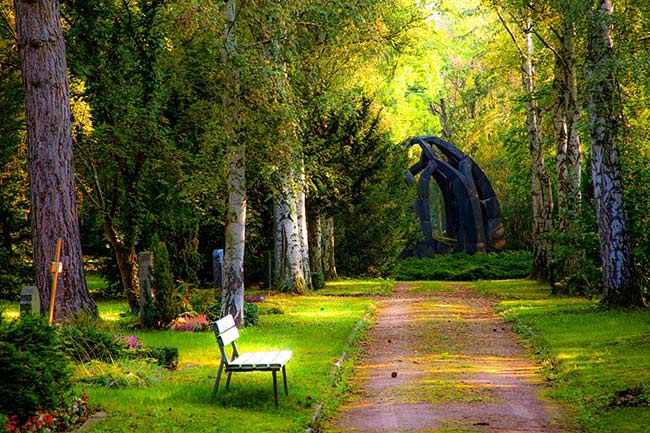
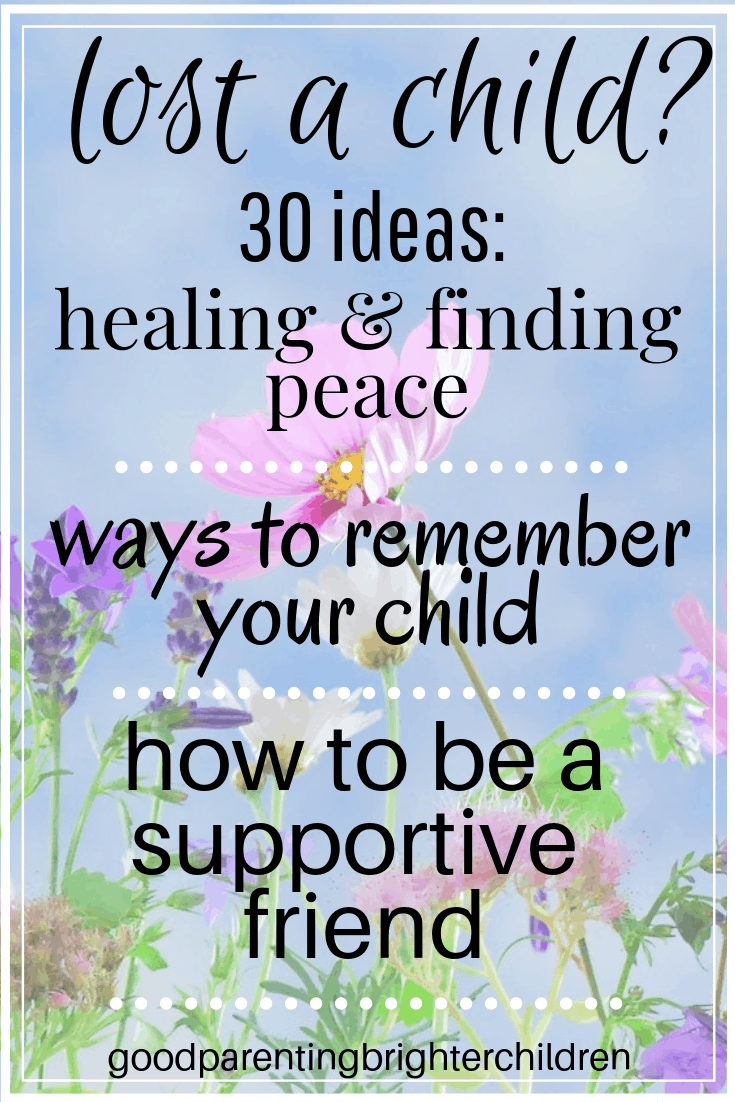


I am Amanda. I had my perfect little baby boy on July 8 2022 . Bryce William . He had the best hair , he was a mamas boy who followed my voice everywhere I went. He was the calmest cutest sweetest baby. I never ever liked sleeping with my first child who is now 7 and never really did. I was that mom who was always scared to do so bc I sleep hard. And then one day it happened. And my life changed forever. Bryce died at 7 weeks old. Exactly . He was born on a Friday and died on a Friday. Aug 26 2022. We slept for three hours… Awaken by my seven year old bc the baby didn’t cry, or else I would have woke sooner. In shock and Infront of my other child I held my baby knowing it was too late. I still tried cpr and called 911. It was too late. I prayed and screamed for a miracle. It was like a movie in slow motion and that day plays over and over and over everyday in my mind. You think that will never happen to you and then one day it does. My days are full of anxiety, tears, brokenness, I feel lost, don’t know where or how to go from here. I try to get through the days . That’s all I can do . I’m so sorry for anyone who lost a child. There are no words that will ever fit how the empty broken soul is now. A hole that constantly takes your breathe away. May God bless you all.
Amanda Rose
Dear Amanda, I am so very sorry about the loss of your beautiful baby boy. Reading your story brought back memories of my own loss. Your feeling of a “hole that constantly takes your breath away,” never quite goes away. But, it keeps your precious child near your heart at all times. Give yourself time and tears. There is nothing as gut-wrenching as losing a child so don’t try and rush the process for others–do what you need to do to slowly recover. I hope some of these suggestions in my post will help, but every situation is different and you may find that other things help more poignantly. Hug your other children; keep them close. Thank you for sharing your heartwrenching story. My prayers and thoughts are with you Amanda.
I have not lost a child, but as a pastor’s wife I have now had to walk along side a young mom who lost her only child. Your article has helped me as I visit with her and have brought up things that I have encouraged my husband to address at the funeral service. Thank you for sharing so much of your personal feelings and thoughts. You obviously been a help to so many people who did not have a resource to assist them until they/we found your article. God bless you.
Oh my goodness! You made my day! Thank you so much–you have no idea how your kind words made me feel. I’m so glad the information was helpful as you comforted a member of your flock. And I’m so sorry that this mother lost her only child–that is tragic. God bless you for all the wonderful work you and your husband are doing for others!
I am so very sorry for the loss of your precious baby. I lost my oldest son in August of 2017, he was 28 years old. I was completely numb for the first year just going through the motions of life. The second year proved to be the hardest for me as I realized he was not coming home . We have a latern that we keep lit on our front porch for him each night as well as a memory latern inside that we decorate with seasonal items specific to him. We also put up a Christmas tree just for him with his ornaments on it and he still gets a new ornament each year. I find comfort in visiting his gravesite and taking him new flowers every month. I really miss my boy !!
Cindy–I’m so very sorry for the loss of your son. I love the beautiful, unique, and very special ways you remember him–especially the lantern idea. I want to do that, too. Your loss is still so fresh, I can understand why you are having difficulties. Time does help, but, as you know–a mother never forgets. My heart goes out to you. Thank you for taking the time to share.
My son died in August 2017 too. Today in fact. It never gets easier and still so hard to believe. My faith in God and good therapists have helped. I miss him terribly and the world seems so quiet without him. He was my best friend. Much peace to you Cindy and I lift all of us up in prayer every night. I long for the day to see him again. Be well.
I’m so sorry for your loss. And you are right–it never gets easier. I do hope that with time, you will at least experience some peace.
I just lost my son Amir on March 30, 2020. He was 15 years old. Since that day I’ve been in shock and disbelief. The only thing that some what helps is 1. As you said crying 2. Listening to other parents tell there stories on how they have found ways to to cope. Right now I’m not coping, I’m just alive. I was once scared to think of my own mortality but not anymore. I guess because now Amir is there waiting for me. I saved this page and will use it as a reference to help as the years go by. Thanks you
Sharena–I’m so sorry to hear about the loss of your son. Please accept my heartfelt condolences. There is nothing to compare with losing a child–it leaves an ache in your heart that is difficult to heal. Take time to mourn and talk to others. And please write again and let me know how you are coping. I care…
Sharlene there is something Matt & his family do in memory of their son, Andrew. They have an Andrew jar where we put in spare change thru out the year & in various ways earn money specifically for the jar. Then they give it away at Christmas time. They go to our neighboring city & simply & prayerfully select homeless people to give it to. They give in other ways too but they want this to be a personal first hand experience. Its quite a touching experience.
What a wonderful way to remember a lost child! I love it and I think I’m going to try it out this year. I’m always looking for interesting, fun and creative ways to remember my son. Thank you so much for sharing!
Thank you Sharlene for this great article and your ideas and thoughts. There are so many things about loss that we don’t know until we experience it. But it is good to know that people such as yourself are so willing to share such a personal story with others to help them cope. Over the past 20 years I have been a maker of Memory Quilts for others at a time of loss. These experiences have changed me. Please see my thoughts on grief and loss.
A Quilt that completes your heart –
The art of Memorial Quilts
by Dodi Lee Poulsen
Grief is a journey, an inescapable part of life. At some time in our lives, each of us will come face to face with grief and experience the loss in our own unique way. We are mistaken if we think we know how someone else “feels.” Although we may have lived through a loss such as death, each of us will walk our own path down the road of grief.
Over the years, quilters have expressed their love and tribute for a friend or loved one by creating a memorial quilt after a death. Today, quilters across America have been gathering together to make quilts in honor of those involved in recent conflicts of war and circumstance. Creating memorial quilts connects us to an event, the past or to an individual. Memorial quilts are a wonderful way to express gratitude and honor for a special person.
The first record of memorial quilts in the Americas is documented during the period of 1775-1789, when the War of Independence severely limited the availability of imported fabrics. Using the clothing of the deceased, memorial quilts were lovingly created.
During the Civil War, quilts for soldiers were made as practical commodities by women from both the South and the North. As the Civil War progressed and the fatalities increased, the immense loss of life became overwhelming. Women and their families needed a way to honor and grieve their loved ones. Often, quilts were made out of the remaining clothing left behind from the deceased. Hence, they became known as memorial quilts.
In a tragic car accident five years ago, my nephew Ryan was killed. It was then I started down my personal path of grief, mourning the loss of a vivacious and energetic soul. Ryan’ personality was contagious and his death left a void that I could not fill. It has been said that the only cure for grief is grieving. My healing took place in the making of memorial quilts for those closest to him.
My journey started with one quilt and five more quickly followed. As my family assisted in the closing of Ryan’s estate, I asked for several pair of his jeans. At that time, I knew I wanted to make something that would provide each of us comfort as we grieved. Grieving together connected us to each other and to Ryan.
As a quilt maker, I knew that my journey had to be in the form of a quilt. I felt a sacred responsibility; to take these jeans and create quilts that would capture the love each of us felt for him. Ryan’s brother told me that this quilt has become so precious to him, that if his home were on fire, the only thing he would go back for would be Ryan’s quilt. Of course, this remark humbles me.
Memorial quilts are dear to my heart, and if we listen, we will hear them speak to us through the fabrics, color and design. It is my experience that memorial quilts can provide a remarkable insight into ones self and provide closure to the deceased’s life. Allow me to share what my experiences have taught me over the years.
GATHERING PERSONAL EFFECTS FOR A QUILT
Gathering materials for your quilt can be sometimes intimidating. It can be difficult to ask for an item of clothing while others are in the midst of their grief. It is my experience that asking is a loving gesture for the both the family and the deceased. It is okay to ask. How you ask for these treasured items may differ depending on your personal relationship with the deceased and their families.
Asking someone one step removed from the family member may ease the discomfort. For example, if your aunt passed away, and you know her children would appreciate the gift of a quilt, ask her children to provide the articles of clothing. At this time, approaching the Aunt’s husband may be too difficult for him. Simply telling them of your intention may ease their concern about the items. If they appear reluctant to part with any items right away, simply plant the seed and wait.
Timing can be very important; when asking for personal effects. Waiting more than a few weeks may negatively impact your ability to be given personal clothing. Since each person grieves differently, some may discard the clothing right away, while others may choose not to part with it – ever. Asking again a short time later may be appropriate as vision can be clouded in a time of grief. One pair of jeans or one shirt can make several quilts. I can assure you from my own experiences that the grieving will be overjoyed to have this quilt as a loving remembrance.
LISTEN
If you are wondering how to best help those who are grieving, I have found that the best thing you can do is to LISTEN. Listen to the stories they want to share with you. By allowing them to talk about their loved one, you validate their loss. By listening to what they tell you about their lost one, you will be able to gain insight so that you may find the right fabrics and design to honor them in a respectful way, while capturing their personality. You will learn things that you might have never known. Subtle statements can spark your creative connection to the quilt. Fortunate is the grieving person who has a good friend willing to listen.
FABRIC CHOICE
When gathering clothing items of the deceased I usually start with a base focal fabric. With the new stabilizers now available one can use almost any item of clothing to incorporate into a quilt. Shirts, tops, a favorite apron or pair of pants are all useable.
If I am using jeans in the mix, I may combine several pairs so that different values of blue are represented in the quilt. Because of the weight of the jeans, I keep those blocks simple in design.
DESIGNING
Be open to listening while you sit and design. I have thought about taking a quilt in one direction only to find it wanted to travel its own path. I could sense its direction by merely listening as I designed. Sometimes I don’t know the deceased well, but know the family. As I listened, I learned about the individual. I could feel the love this person had for those left behind. The quilt will tell you its direction as you gain insight on the deceased. If you know the deceased well your own connection will add depth to your design.
I created a quilt for a young four month old baby boy whose mother was killed in a car accident. I had known his mother as a teenager and a young wife. As I planned this quilt for young Matthew I felt a sense of peace and calm. The quilt reflected this feeling by its simplicity and 3 color design.
SHARE YOUR MEMORIES
If you have a memory of the deceased person, share it! Those who remain will want to hear it. With each quilt I create, I compose a letter describing my experience with the deceased and the making of the quilt. If I didn’t know them well, I recount one thing that I do remember about them. It could be their smile or the way they interacted with a child. I also share my experiences in working with the quilt itself, relating what I “heard” while sewing and why I chose the fabrics I used. Writing the letter is truly my favorite part of the entire process. It allows me to share the culmination of my experiences both with the deceased and the quilt recipient.
While making a quilt for a friend’s beloved son, I searched for fabric with eagles as he enjoyed them and the outdoors. Though I searched in vain through many stores, could not find what I envisioned. One day, I found a beautiful sage green fabric that was soft and whimsical with bluebirds swirling throughout. I knew this was the correct fabric. To me, it represented the bluebird of happiness and Todd’s desire for his family to be happy despite his absence.
Todd’s mother expressed that she felt her son close by because the quilt was cozy and warm. Her family related that she wore the quilt for weeks and they were worried, but I was not. She felt a connection to him at a time of immeasurable loss and found comfort in the quilt. I often put flannel or minkie fabric on the back of the quilts for increased softness and to reflect the feeling of warmth and love that soft fabrics invoke.
COMPLETE THE STORY
Label each quilt with important information. Allow the creation to tell its own story, such as who it was created for, dates representing their life and who made it. You can also add other things such as a favorite quote, pictures, or other items that may bring comfort.
Finally, these quilts are gifts of the heart. I have learned that I am the student and the quilts and those who receive them are the teachers. I have been blessed with a passion for quilting, which defines my soul. It is however only in the sharing of this art that my heart is full and complete. As you lovingly create a memorial quilt you will find yourself forever changed by the experience.
Dodi–what an amazing story and what a loving kindness you do for parents who have lost children. Your quilts sound incredible and put together with so much love and care. What an amazing gift that would be for the parents who lost their child to now have this touching remembrance. Thank you so much for sharing!
I agree with Trudy’s comments, as well as Tiffany’s. In the past I have had friends who have lost a child. It has been so difficult to know what to say, or do. For me, the hardest part is that first time I meet with them. What I have learned is to say “I’m so sorry” and “How can I help?” It did take some time to learn that. I wish I had read your blog years ago. You expressed your experiences so beautifully. Thank you for sharing this very personal experience.
Thank you, Cheryl. Knowing you, I’m sure you said all the right things. Just knowing someone cares means a lot. Thank you for sharing!
HI Sharlene,
Thank you for sharing. This is Breanne Simpson, formerly Sandberg. I lost one of my twins, our baby boy Koa, 19 months ago this week. It has been the hardest most challenging thing we have gone through. He had a rare condition called Megacystis which affected his bladder and lungs and kidneys. We saw many specialists and had great doctors, however, we were shocked that he ultimately died. We expected him to have kidney transplants and bladder issues and surgeries but for him to die at 12 hours old was beyond anything we were ready for. It shocked us to the core and has changed us in so many ways. Our baby girl Mirai is thankfully healthy and well but there isn’t a moment of the day that goes by that we don’t miss our boy and wonder the what ifs and the longing. I’m so sorry for your loss of your baby boy, your fourth. This was our 4th baby too, 2 minutes behind his sister…we are currently pregnant with our 4th baby girl and 5th child in July and it’s emotional and hard. WE look forward to holding her in our arms. We still carry anxiety and many emotions and have seen counseling to help. I’m trying to find my own support group to help along. IT’s really challenging and your piece you shared really resonated with me. Thank you for sharing. I’ve shared much of our story on Facebook in a page called “Prayers for Koa” if you’d like to hear our story. I started it months prior to our twins birth when we learned of Koa’s complications. Thank you for sharing your thoughts. For me it’s helpful reading of people’s experiences because it makes me know I’m not alone in the thoughts and feelings I have and that is very comforting and supportive. Much love, Breanne
Breanne–I’m so sorry. No, I did not hear about your son–and I’m so very sorry. And my heart goes out to you now as you are expecting another child. Like you, I remember the anxiety of having another child and worrying about the health, etc., of that child. There is nothing to compare with a loss of a child. It causes an ache in your heart that never completely goes away–despite beliefs of a hereafter. I will go and read the story on your Facebook page–thank you. And my thoughts, prayers, and concerns are with you and your family…
So many heartbreaking times I had wished there was something written down, a tangible offering I could give to those suffering this extraordinary heart stopping tragedy. Please gather this together & print it❤
You are too kind, Trudy–thank you.
Thank you for sharing your thoughts and feelings about Jarom, your other boys, and the grieving process. We lost a grandson at six months and so many of these ideas for coping applied to our process too. I had felt almost guilty at the sorrow I experienced. After all, I was not the mother, just the grandmother. I gave myself permission to grieve fully, realizing that much of my sadness was in behalf of my son and his wife, and understanding, as you do, that everyone needs to grieve. Length of time with the child and othe factors do not negate our need to grieve. Our two youngest children, the young uncle and aunt, recieved counseling from a therapist.
I think you have material here for a book. I hope you’ll consider writing one. Thank you.
Susan, I’m so sorry to hear about your grandson. Like you, I would have felt the same because we love and cherish our grandchildren as much as our children–they are all a part of the same family. I’m glad you were able to grieve…it’s so important and helps with the healing process. How are your son and his wife doing? I’m glad your two youngest children received counseling. I was in such a shock that it didn’t even occur to me to have my son see a therapist and I regret that. As you know, it takes time to digest everything. Again, thank you for sharing and please extend my heartfelt concern to your family.
Beautifully written. Thank you for sharing this personal experience in hopes of helping others.
Thank you, Tiffany! As always–you are a great support!